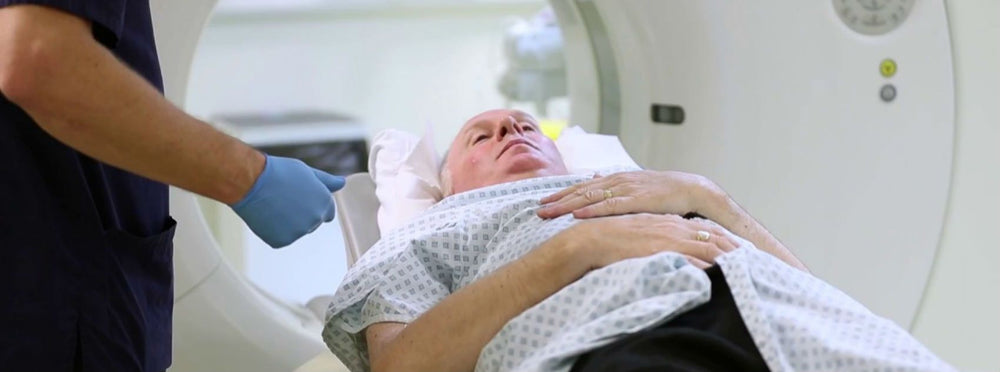You might not need statins after all

Been told you need a statin and questioning whether this is the right step for you? You’re not alone: According to a recent article in Mayo Clinic Proceedings every man over age 65 and every woman over age 70 qualifies to be put on statin drugs.
That’s because heart disease risk calculators are so heavily weighted for age.
When determining whether someone needs to go on a statin (medications like Lipitor® and Crestor®), physicians typically use those risk calculators to take in various information about a patient (like age, blood pressure, smoking history, HDL levels etc.) to estimate a patient’s individual risk of a heart or vascular event over the next 10 years. A 7.5% or higher calculated risk number indicates that the doctor should write a statin prescription. As you get older that 7.5% could come from age alone.
However, putting someone on a drug for cholesterol is not an inconsequential decision. The same Mayo Clinic article notes that although statins clearly reduce the risk of heart events, muscle and joint side effects can affect up to 30% of people taking these medications and that 10% of individuals on statins go on to develop diabetes.
So why should EVERYONE be put on a drug when they reach a certain age? After all, not everyone experiences a heart event during their lifetimes.
The answer, of course, is that they shouldn’t. And here’s how you may be able to safely opt out: A new study shows that men aged 55 to 80 and women aged 60 to 80 years of age who have a coronary calcium score of 10 or less are at very low risk of experiencing a heart event -- regardless of risk calculator results -- and therefore would not be expected to benefit much from being on a statin. This low risk expectation lasts at least three years, at which point the scan could be repeated.
Remember, we put people on statins to lower their risk of experiencing heart events. How low LDL cholesterol numbers end up is just a measure of how much the risk was reduced. If your risk is very low to begin with, adding a statin won’t meaningfully affect your outcome, regardless of your cholesterol level or your age. Of note, 38% of participants in this new study had a calcium score at or below 10, suggesting that a substantial number of people could avoid statin drugs at least for several years.
Here’s how the coronary calcium scan works: Calcium accumulates in heart arteries only in the setting of plaque build-up and is visible on a computed tomography (CT) scan. The calcium score is a measure of the total amount of calcium detected, giving us a clue as to how much plaque has built up. A score of zero means no calcium was detected and that plaque amounts are very low, while a score over 100 indicates that a significant amount of plaque is present. A score over 400 indicates that enough plaque was identified that it makes sense to do a stress test even if you're feeling fine. The highest score I’ve ever seen? Over 1700.
A coronary calcium scan is typically covered by insurance if you are referred by a physician. If it’s not covered, or you decide to have the test done on your own, out of pocket costs are around $100.
A few caveats:
- Some people should be on statins - because they are so high risk (making coronary calcium scans superfluous). This includes people with known heart or vascular disease, people with diabetes, and most people with genetically driven very high cholesterol levels (familial hypercholesterolemia).
- If you have the scan done and calcium is detected, there is no need to panic even if the score is high. Calcium builds up over many months/years. So whatever score you have has been there for some time. The score just helps to better individualize prevention efforts.
- Lifestyle – and especially diet – is the cornerstone of risk reduction regardless of your age, your cholesterol results or your coronary calcium score. Favoring a more whole food plant based diet (Step One Foods to the rescue!) exercising regularly and quitting smoking are the most important steps you can take to enjoy your best overall health and to ensure your best long term outcome.

Tested & Proven Results.
- Cardiologist formulated
- Supported by over 500 publications
- Clinically-proven, in a double-blind randomized trial with Mayo Clinic and The University of Manitoba
80% of participants lowered their cholesterol in just 30 days. With just two servings per day, Step One Foods offers a proven-effective way to naturally lower LDL (bad) cholesterol.
Get heart health tips and articles like this, delivered right to your email.
New articles every week.
You may also like...

The Clock You Should Be Paying Attention To (But Probably Aren’t)

The LDL Chart Fueling Confusion Online - And What It Misses

You don’t need to avoid foods with cholesterol…except for these


